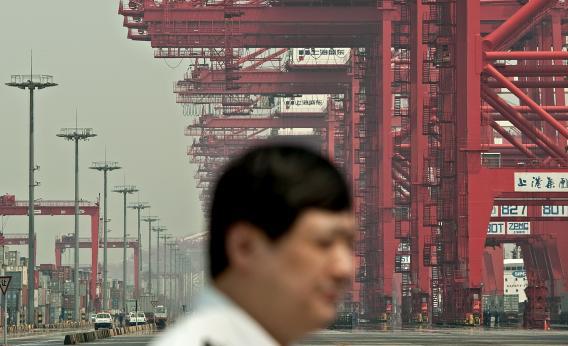Two indications in the news today the diminishing influence of America on the world, both self-inflicted: a currency agreement between Japan and China, and the slipping of Iraq back toward chaos. I want to look at them both this week, but today, let’s start in the Far East.
Multiple reasons lay beneath the decision by China and Japan to denominate their trade in local currencies rather than the U.S. dollar – the global “reserve currency.” As the Financial Times puts it: “The two Asian economies said that they wanted to reduce costs and risks for their companies – an implicit call for less reliance on the dollar, which is currently their predominant medium of exchange.”
There is some basic cost savings in doing this – avoiding the volatility of dealing with three exchange rates instead of just two.
And politically, the two have sought various way to lessen tensions after a series of maritime incidents between Japanese patrol craft and Chinese fishing boats. Giving China a greater stake in Japan’s currency, the yen, and vice versa, can help stabilize a relationship that has not been warm since the Sino-Japanese war of 1895.
This deal imbues a bit of the “mutually assured destruction” dynamic that America and China share by virtue of their economic interdependence, and by doing so, raises the political costs of careless rhetoric, blowing maritime incidents out of proportion, or, on Japan’s side, failing to properly acknowledge 20th century war crimes.
But the larger message this pact sends is economic and it is directed at America: “We have no faith in your leadership.”
China and Japan, the second and third largest economies on earth, also happen to be the first and second largest holders of US Treasury bonds (aka, US debt). Trapped in that situation – a selloff would hurt them as much as it would hurt the United States – they have taken a baby step toward unseating dollar’s dominance in global trade and finance. The short-term implications may be good for the US: the more China opens its currency, the renminbi (RMB), to global markets, the cheaper American exports will be.
Longer-term, however, this is a part of the long game played by Beijing. Since American financial “creativity” nearly threw the world into Depression in 2008, China, Russia, Malaysia, South Africa and others have called for the creation of a new global reserve currency not beholden to the dysfunction of the US political scene.
They are a very long way from finding one – the dollar likely will remain dominant for a decade or more, conferring on the US economy enormous benefits in terms of interest rates, not to mention giving the Federal Reserve and US Treasury far more power than their balance sheets warrant.
But the slip sliding continues. A Japanese official was quoted China’s media denying that its intention of buying $10 billion in Chinese government bonds – another precedent that grew out of the weekend summit meeting – is plan to diversify away from the dollar. And if you believe that, they have a nuclear plant they’d like to sell you.
